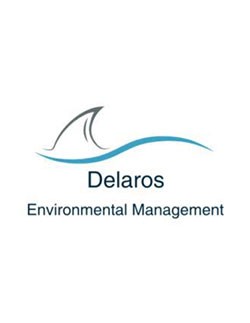Short Bio Organization
DELAROS OE is a company located in the island of Mykonos specializing on water resources management and marine environment investigation. It consists of water scientists specializing on water and wastewater treatment, waste management, marine depollution and other activities. Their research includes:
- Evaluation of anthropogenic pressures and pollution at river basin and its impact on the quality of coastal, surface and groundwater.
- Investigation of environmentally optimal design disposal projects and wastewater reuse and sludge.
- Design of water treatment facilities in connection with the water origin (e.g. surface, underground), the quality of natural water and the relevant legislation.
- Designing solutions and implementing interventions in existing water treatment units and water distribution systems to deal with specific problems such as toxic substances, odour & taste problems etc.
- Technical consultancy services to governmental organizations (Municipalities, Water Supply and Sewerage Companies, etc.) and to private sector on water-related topics such as water quality, water supply, operation of water and wastewater treatment plants
- Development of environmental impact studies
- Water and land ecosystems management ecology, environmental education and information
- Development of rainwater harvesting systems in the Greek islands
- Operation optimization suggestions, extensions and upgrades, organization and mode of collection of records etc.
Relation with HYDROUSA
In the frame of HYDROUSA, DEL will oversee the design and construction of an innovative rainwater harvesting system (HYDRO3) and the construction of HYDRO4 which will be implemented in Mykonos. In addition, DEL will maintain, operate and monitor HYDRO3&4 in collaboration with other partners. HYDRO3 is a sub-surface rainwater collection system and the water stored will irrigate 0.4 ha of oregano. HYDRO4 is a novel decentralised solution for rainwater harvesting, aquifer storage and recovery (ASR) system that is developed in order to store excess water during the winter months and reuse in summer, thus to maximise the utilization of the resource and increase water management efficiency.






